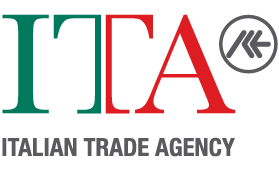Greenwashing hurts sustainability
Principles of sustainable communication
Is fashion sustainability in fashion? Even more. It is the new categorical imperative: one cannot miss being green.
Good news. Yes, if it weren't for the fact that too many companies (also) in the fashion industry still prefer the shortcuts of assertive and winking communication to documented information. Wrong behaviour, often intentionally, because 'the important thing is to follow the trend', but sometimes in good faith. The result, however, is the same: in the long run, consumers are pushed to no longer trust, to put everyone on the same level, and the efforts of many who (really) work to reduce the environmental impact are nullified. Not to mention the loss of reputation: when a company is caught giving itself credit that it does not have, its image is tarnished, if not worse.
This phenomenon - attributing characteristics of sustainability not endorsed by facts, is called greenwashing and metaphorically means giving oneself a touch of green. More precisely, these are communications referring to a product, a manufacturing process or to the company as a whole based on the use of words, slogans, labels, images and videos that recall environmental characteristics not supported by facts and aimed at drawing deceiving consumers.
So let's see what we must and must not do to avoid it.
- Do not use generic words such as: sustainable, green, ecological, friend of the environment, protector of nature ... they mean nothing. Instead, it is crucial to describe the specific environmental performances and support them with data and numerical values (for example, organic material, with a percentage deriving from recycling, recyclable).
- Tell the truth by distinguishing what has been done from good intentions: consumers and stakeholders appreciate intellectual honesty,
- Do not attribute to ourselves the merits of others: using a certified product does not mean that we too have obtained that certification but only that we favour materials that have a history controlled by a certification body,
- Do not exaggerate: we would love to, but it is not with the purchase of a pair of jeans that we save the Planet ... it takes much more,
- Did we make a capsule collection or a line with sustainability contents? Excellent, but we do not extend these merits - albeit important - to the entire production.
In short, lowering the environmental impact of a product is a cross-cutting job, and it is not always enough acting on a single feature to obtain a low Carbon Footprint; this is why it is essential to tell things as they are and to give transparent and documented information.
Can certifications help to communicate objectively and improve our reputation as a sustainable business? Indeed, being voluntary initiatives validated by a third party, it is assumed that they are based on verified and verified contents. Let's use them with the same attention that we dedicate to the renewal of the license: even the certifications expire, and having certified a collection does not mean having certified all the production lines.



